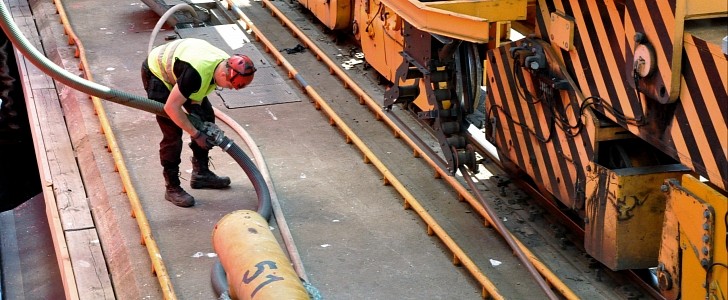A non-profit organization based in Finland has launched the Ship/t Waste Action, a project that brings together several companies and key players in the maritime industry, in order to stop cargo ships sewage from being thrown into the Baltic Sea, and turn it into sustainable biogas, instead.
According to the Baltic Sea Action Group, (officially named “Foundation for a Living Baltic Sea”), the Baltic Sea is one of the most polluted seas in the world, facing problems such as eutrophication (excessive nutrients density), oxygen depletion, hazardous substances and the loss of biodiversity. With approximately 2,000 ships operating in this region on a continuous basis, the Baltic Sea is affected by all the wastewater and food waste that are being discharged into it.
When it comes to the environmental concerns regarding the shipping industry, most of the focus has been placed on CO2 emissions and on finding solutions for cutting them as much as possible. But cargo ships have a negative impact not just on the atmosphere, but on the water itself. Unfortunately, it’s still legal for these vessels to discharge their untreated sewage straight into the sea, although this has been prohibited for passenger ships in the Baltic Sea, starting this year.
This is why BSAG has come up with a sustainable solution that allows ships to discharge sewage at port, which is then treated and converted into renewable energy. In a perfect example of circular economy, the waste from cargo vessels is turned into alternative fuel for maritime traffic.
Several institutions and companies are making this possible, from collection and transportation to the conversion process. The waste that’s discharged at HaminaKotka, Finland’s largest general port, is refined at a biogas plant and turned into fuel.
Passenger ships in the area have been voluntarily discharging wastewater at port for years, and now it’s time for cargo ships to do the same. BSAG considers that all waste from ships transiting the Baltic Sea should be recovered. The second step of turning it into biofuel is probably one of the most sustainable ways of also reducing CO2 emissions for maritime transportation.
When it comes to the environmental concerns regarding the shipping industry, most of the focus has been placed on CO2 emissions and on finding solutions for cutting them as much as possible. But cargo ships have a negative impact not just on the atmosphere, but on the water itself. Unfortunately, it’s still legal for these vessels to discharge their untreated sewage straight into the sea, although this has been prohibited for passenger ships in the Baltic Sea, starting this year.
This is why BSAG has come up with a sustainable solution that allows ships to discharge sewage at port, which is then treated and converted into renewable energy. In a perfect example of circular economy, the waste from cargo vessels is turned into alternative fuel for maritime traffic.
Several institutions and companies are making this possible, from collection and transportation to the conversion process. The waste that’s discharged at HaminaKotka, Finland’s largest general port, is refined at a biogas plant and turned into fuel.
Passenger ships in the area have been voluntarily discharging wastewater at port for years, and now it’s time for cargo ships to do the same. BSAG considers that all waste from ships transiting the Baltic Sea should be recovered. The second step of turning it into biofuel is probably one of the most sustainable ways of also reducing CO2 emissions for maritime transportation.






